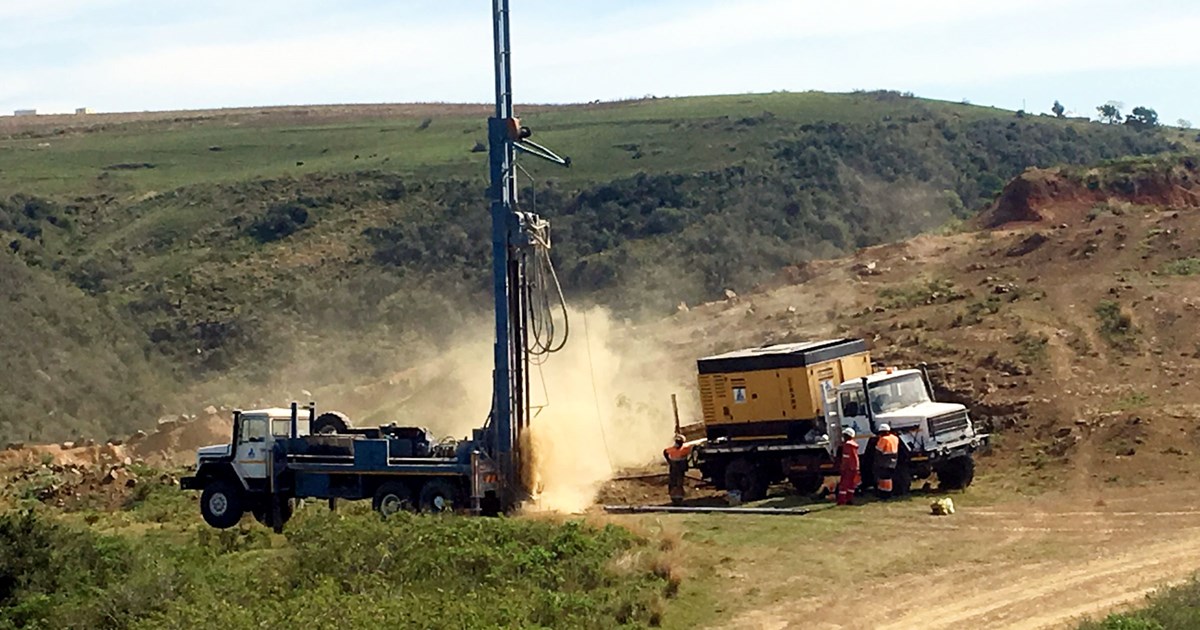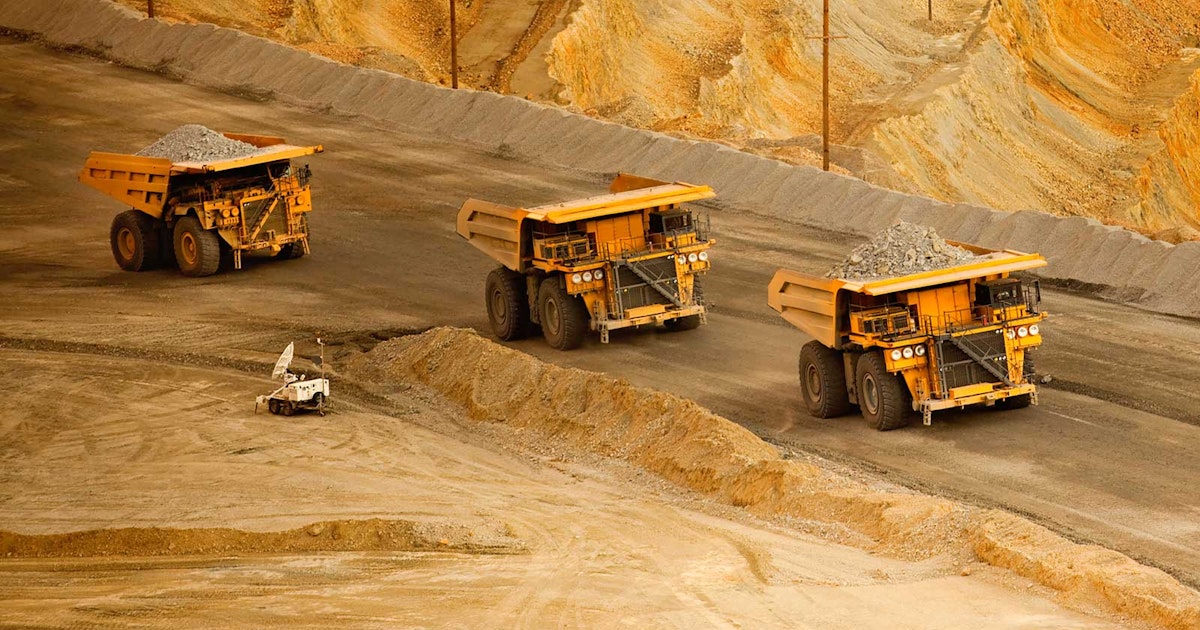The Relevance of Geotechnical Design in Resolving Environmental Challenges and Enhancing Building And Construction Security
Geotechnical design functions as a foundation in the crossway of ecological stewardship and construction safety, providing crucial understandings right into the behavior of soil and rock under various problems. This self-control not just addresses pushing ecological obstacles such as soil disintegration and groundwater security yet likewise enhances the toughness of framework versus all-natural hazards. By applying calculated site investigations and customized mitigation measures, geotechnical designers play a vital role in guarding both human lives and environmental honesty. The intricacies of these difficulties raise crucial inquiries concerning the future instructions of this area and its ramifications for lasting development.

Role of Geotechnical Engineering
Geotechnical design plays an essential duty in the design and building of infrastructure by resolving the behavior of soil and rock products under different problems. This field of engineering is important for comprehending the interaction in between frameworks and the ground, which includes determining the load-bearing ability of soil, assessing stability, and anticipating possible settlement or failure.
Geotechnical engineers are accountable for carrying out website investigations, which involve sampling and screening dirt and rock to gather data on their physical and chemical buildings. This information is important for making structures, maintaining walls, and various other earth-retaining frameworks that ensure safety and security and long life. Moreover, geotechnical design educates the selection of ideal building methods and materials, thereby reducing dangers related to dirt actions.
Moreover, the integration of geotechnical engineering concepts into metropolitan planning and environmental management is vital for attending to obstacles such as ground contamination and groundwater administration. By recognizing geotechnical aspects, designers can create lasting solutions that enhance the durability of facilities versus all-natural risks, while likewise advertising environmental stewardship. Ultimately, the role of geotechnical engineering is important for accomplishing safe, resilient, and ecologically mindful building and construction techniques.
Dirt Erosion Reduction
Dirt disintegration postures a substantial hazard to both environmental stability and facilities stability, affecting about 24 billion lots of abundant soil shed yearly worldwide. This sensation is worsened by elements such as logging, urbanization, and poor farming practices. Geotechnical engineering plays a critical duty in developing efficient dirt erosion reduction approaches that protect both the atmosphere and building projects.
One method requires the implementation of erosion control techniques such as vegetation planting, which supports soil via root systems. In addition, the construction of keeping balconies and walls can successfully reduce surface area runoff and safeguard susceptible locations from erosion. Appropriate drain design is also important; it minimizes water accumulation and routes excess runoff away from essential structures.
Furthermore, geotechnical designers use dirt stabilization strategies, such as the application of geotextiles and eco-friendly mats, to enhance dirt communication and avoid degradation - geotechnical specialist. Routine surveillance and assessment of erosion-prone websites make it possible for prompt interventions, guaranteeing long-term sustainability. By incorporating these techniques, geotechnical engineering not just mitigates the influences of soil erosion yet likewise adds to the durability of framework against environmental difficulties, inevitably cultivating a much safer and more sustainable constructed setting
Groundwater Defense Techniques
Groundwater acts as a vital source for alcohol consumption water, farming, and industrial processes, making its security essential for environmental sustainability and public health. Effective groundwater protection approaches are crucial in minimizing contamination threats and making sure the longevity of this resource.

Routine monitoring of groundwater top quality is additionally important, making it possible for very early detection of contamination sources and assisting in prompt removal efforts. Employing sophisticated modern technologies, such as geophysical studies and remote sensing, help in identifying prospective hazards to groundwater books.
In addition, public education and stakeholder involvement are vital, fostering area support for groundwater defense campaigns. geotechnical specialist. By integrating regulative measures, technical improvements, and neighborhood participation, we can produce a detailed framework that safeguards groundwater sources while promoting sustainable advancement and building methods
Landslide Danger Administration
Landslides present substantial risks to both human security and infrastructure, making effective risk monitoring strategies necessary. Geotechnical design plays a vital role in identifying, examining, and mitigating landslide risks. A detailed understanding of incline stability, soil mechanics, and hydrology is crucial for developing reliable risk management basics plans.
The very first step in landslide risk monitoring includes comprehensive website investigations, which include geological mapping and soil testing. These investigations aid designers review the capacity for landslides by identifying important aspects such as slope angles, soil structure, and water web content. Utilizing sophisticated innovations such as remote noticing and geophysical studies can improve the precision of these analyses.
As soon as risks are recognized, suitable mitigation procedures can be executed. These may consist of design solutions such as preserving walls, drain systems, and slope stablizing techniques. Furthermore, keeping an eye on systems should be established to identify indications of ground motion and adjustments in water levels, enabling positive treatments.

Enhancing Building And Construction Security
Construction websites commonly present a myriad of risks that can threaten employee safety and project honesty. Geotechnical engineering plays a crucial duty in improving construction safety and security by offering vital understandings right into subsurface conditions. Via detailed soil and rock evaluation, geotechnical engineers can recognize potential risks, such as dirt instability, groundwater problems, and seismic vulnerabilities, which may jeopardize the safety and security of construction tasks.
Executing geotechnical options, such as proper structure design and the usage of keeping structures, minimizes these dangers significantly. These services not only guarantee the stability of the structures being constructed yet additionally produce a safer working environment for building employees.
Furthermore, promoting a culture of safety and security with training and adherence to established security procedures further enhances building website safety and security. By integrating geotechnical proficiency geotechnical engineer description right into the planning and execution stages, building and construction projects can attain higher security standards, eventually securing workers and making sure successful project conclusion.
Conclusion
In verdict, geotechnical engineering offers as an essential discipline in advertising and dealing with environmental challenges building security. Through reliable soil erosion mitigation, groundwater protection techniques, and landslide danger management, geotechnical engineers add to the development of resistant facilities.
Geotechnical engineering serves as a cornerstone in the intersection of ecological stewardship and building safety, offering critical insights into the behavior of dirt and rock under various conditions. Geotechnical engineering educates the option of ideal construction techniques and products, consequently decreasing risks associated with dirt actions.
Geotechnical design plays a critical role in developing effective soil erosion mitigation approaches that protect both the setting and construction jobs.
Moreover, geotechnical engineers utilize dirt stabilization techniques, such as the application other of geotextiles and eco-friendly mats, to enhance soil cohesion and prevent destruction. Via comprehensive soil and rock evaluation, geotechnical designers can identify possible dangers, such as soil instability, groundwater issues, and seismic vulnerabilities, which might jeopardize the security of building and construction tasks.